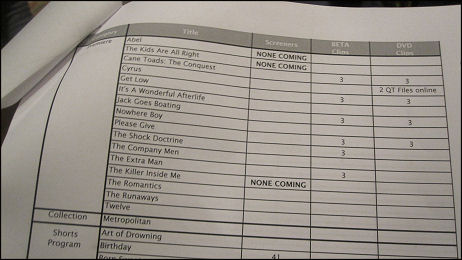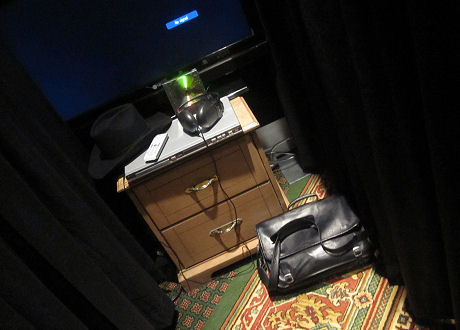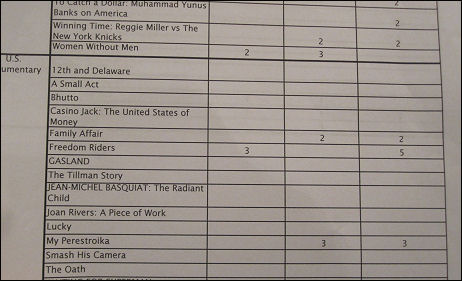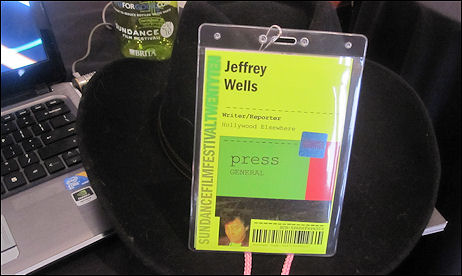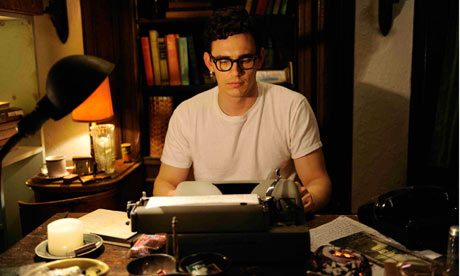With the Academy’s final nomination deadline only four days off, few if any voters are able to think of ten Best Picture nominees, reports Notes on a Season‘s Pete Hammond. They can name five or six and then they stall out. This conundrum, of course, is precisely what Oscar blogger lists are made for.
“In countless conversations with academy voters over the past two weeks it’s apparent that not everyone is able to come up with 10 movies. In fact it’s an epidemic. According to the overwhelming majority of members to whom I have spoken, they get to five or six and give up on the other slots. One voter went so far as to actually send me an e-mail asking me to suggest seven other movies to augment their own three choices. Of course I obliged.
“‘I can barely find five movies to nominate. I have no idea what to do for 10,’ one exasperated member told me this week. When prodded for more information it was apparent they had only just a few of the real contenders and many in their pile of DVD screeners had so far gone unopened.
“One veteran consultant told me about a survey of 60 potential voters that found only 18 had bothered to actually pick 10 movies for best picture nominations
“Of course it isn’t required that members vote for 10 to have their voices heard, but the academy does subtly encourage making the effort.
“Here’s the official language on all ballots: ‘In order for any achievement to be among those chosen from this balloting it must have at least one first place vote. It is important that your FIRST CHOICE be written on the FIRST LINE. You need not fill in all 10 lines. The more preferences you indicate however, the greater the certainty that your ballot will influence the Best Picture nominees list.’
“With the complicated tabulating system,” Hammond notes, “a voter is probably not mistaken in thinking that the first three choices are the only ones that will count anyway, but this is fairly uncharted territory this year.
“Some voters conversely have told me they welcome the chance to name 10 movies as it frees them to go with their heart even if they believe it’s a wasted vote. After listing the usual suspects like The Hurt Locker, Up in the Air, An Education, etc., one guy said he selected Drag Me To Hell because that’s the best time he had at the movies all year and it doesn’t matter that it can’t possibly be nominated because he has nine other slots in which to ‘influence’ the race, as the academy language suggests.
“With all the lunches, parties and other events for academy members lately, its no wonder they can’t fill out their ballot. Who has time to actually see the movies?”
